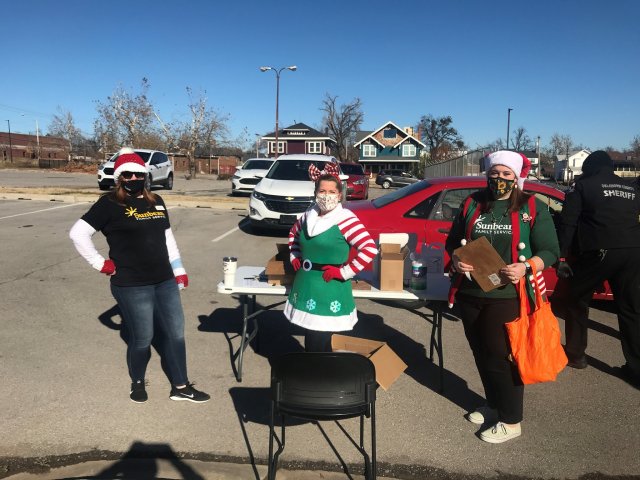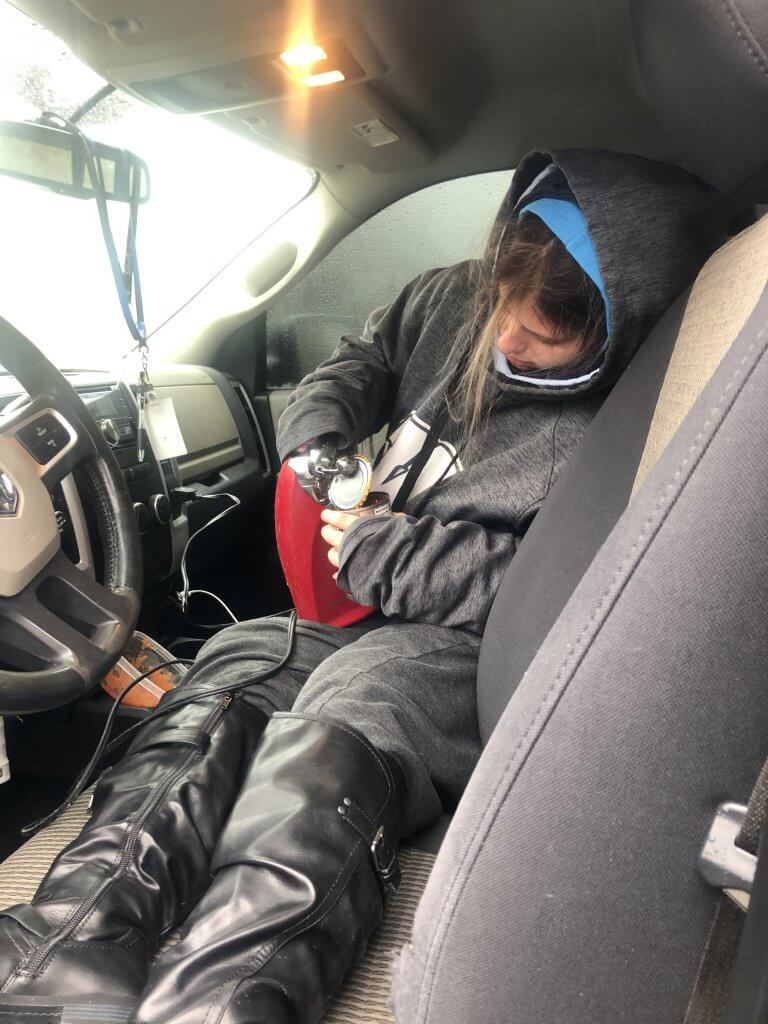

Linda Chambers has had guardianship over her two grandchildren for the past four years. There were new things to learn, like getting the hang of school schedules and navigating programs through the Department of Human Services.
But the biggest adjustment came this year, when the COVID-19 pandemic hit and she found herself facing hurdles she could never have anticipated.
“This year has just been crazy,” Chambers said. “It’s obviously a mess. You want them to go to school and have the experience, but you also want to be safe.”
The COVID-19 pandemic has added a new layer of difficulty for all families, but grandparents taking care of children have faced some particular challenges. Helping students in a virtual school environment has been a problem for some. And sending children to school to potentially bring the virus home is especially risky when the primary caregiver is elderly. These families also have to consider some difficult topics, such as what would happen if the guardian becomes ill with COVID-19.
‘There’s nowhere to send these boys if they get sick’

Chambers has a grandson who graduated from Epic Charter Schools last year and a granddaughter attending 10th grade at Classen School of Advanced Studies. She said things have been easier for her family than most, as she is in good health and has her retirement.
Chambers said her granddaughter has pre-existing conditions and has taken COVID safety precautions seriously in order to protect herself and her grandmother.
“Both of them are really careful,” Chambers said. “During the two days where her school met in-person, she pretty much isolated herself at school.”
In recent months, the Oklahoma Institute for Child Advocacy unsuccessfully advocated for the State Board of Education to implement a statewide school mask mandate. The group’s CEO, Joe Dorman, cited Oklahoma’s top-10 national ranking for grandparents taking care of their grandchildren as part of the reason for seeking a mask mandate.
Chambers said she has a very tight-knit family, so when considering what would happen with her grandchildren if she were to get severely or fatally sick, she knows where they would go. But that’s not the case for all kinship families — families in which relatives other than parents have custody of children.
“Some kids don’t have anybody else they can count on,” Chambers said.
‘They’re just exhausted’
Betty Lowery has two grandsons who attend Oklahoma City Public Schools, and while they have mostly met virtually during the fall semester, she has been concerned about where her grandchildren will go if she gets sick.
“There’s always the fear of them bringing the germ to us, and most of us are in our 60s plus,” Lowery said. “In our case, there’s nowhere to send these boys if they get sick. Nowhere.”
Talena Ford is the program manager for the senior engagement program at Sunbeam Family Services. The program provides assistance to caregivers in Oklahoma, Cleveland and Logan counties, including grandparents who are raising children.
She said a big challenge for these families heading into the school year was technological literacy, as many grandparents don’t have the computer skills or equipment a younger caregiver might.
“Most didn’t even have smartphones, so having home internet was something that they were forced upon. Not to mention, computers that were once considered a luxury are now a necessity,” Ford said. “There are also financial constraints. They were relying on schools to provide two meals a day and now they’re not.”
Ford said grandparents have also been taking on the role of school counselor, trying to help their students with college applications and financial aid forms. Another struggle is getting the teenagers they’re caring for to take COVID seriously.
“These teenagers love their grandparents, but sometimes we don’t feel that they’re taking it as serious. There’s a constant battle of wills,” Ford said.
Ford holds a support group for grandparents raising their grandchildren twice weekly over Zoom.
“The largest consensus is that they’re keeping their kids home. They’re scared,” Ford said. “I hear right now that they’re just exhausted from COVID and just trying to learn things new. They’ve been protecting themselves by not putting their children in the schools, doing the online learning and just trying to make their way through this new territory, on this new journey they’re on.”
‘I’ve seen absolutely amazing support come around those families’
Dr. Deborah Shropshire serves as director of child welfare services with the Oklahoma Department of Human Services. She said the emergence of COVID-19 gave the agency new concerns to consider, including their responsibility to children, caregivers and community health during these times.
In the spring, DHS moved family visitations to a virtual format in order to help limit person-to-person contact. In the summer, they went back to face-to-face visits, with modifications available if the caregiver is someone at a higher risk of contracting COVID. The department also issued additional financial supports for foster families to help with extra costs, such as food.
“The big concern was going through the summer into the fall both with school and with daycare,” Shropshire said. “There was a tremendous amount of work done by other divisions in the department to try to make sure that daycares were stabilized and that there was funding for daycares to keep open.”
The department put similar focus on children returning to school for the fall semester.
“We were trying to figure out how we make sure there are places where kids can go and that there are people that can be reimbursed to help provide care for that child while they’re doing virtual school,” Shropshire said. “Does the family have the technology to keep that child’s education moving forward in a positive way?”
She said DHS has been supporting local organizations, such as the Boys & Girls Club, that are willing to expand their childcare to include the whole school day. The agency has also been providing options to reimburse relatives or other childcare options for foster families.
DHS has also been working to help families better understand the public health side of COVID, including precautions to take to lessen the chance of catching the virus and ensuring that families have the personal protective equipment they need.
“We have had some impact to foster families,” Shropshire said. “Four or five percent of Oklahomans at this point have had COVID, and that’s not untrue for foster parents either.”
She said many of the families affected by COVID have been able to hunker down and get through it, but there have been a few situations where caregivers have gotten sick enough to require hospitalization. Shropshire said in the case of hospitalization, the child will have to be moved into another home temporarily.
“I’ve seen absolutely amazing support come around those families,” Shropshire said. “We’ve had so many either relatives of that foster parent or other people step in and say they’ll help take care of that child while they serve out their quarantine.”
She said this support has helped prevent instability for these children throughout the pandemic so far.
“We’ve not seen a whole lot of instability of kids that are in foster homes because of COVID,” Shropshire said. “We have had to rally around some of those families.”




















